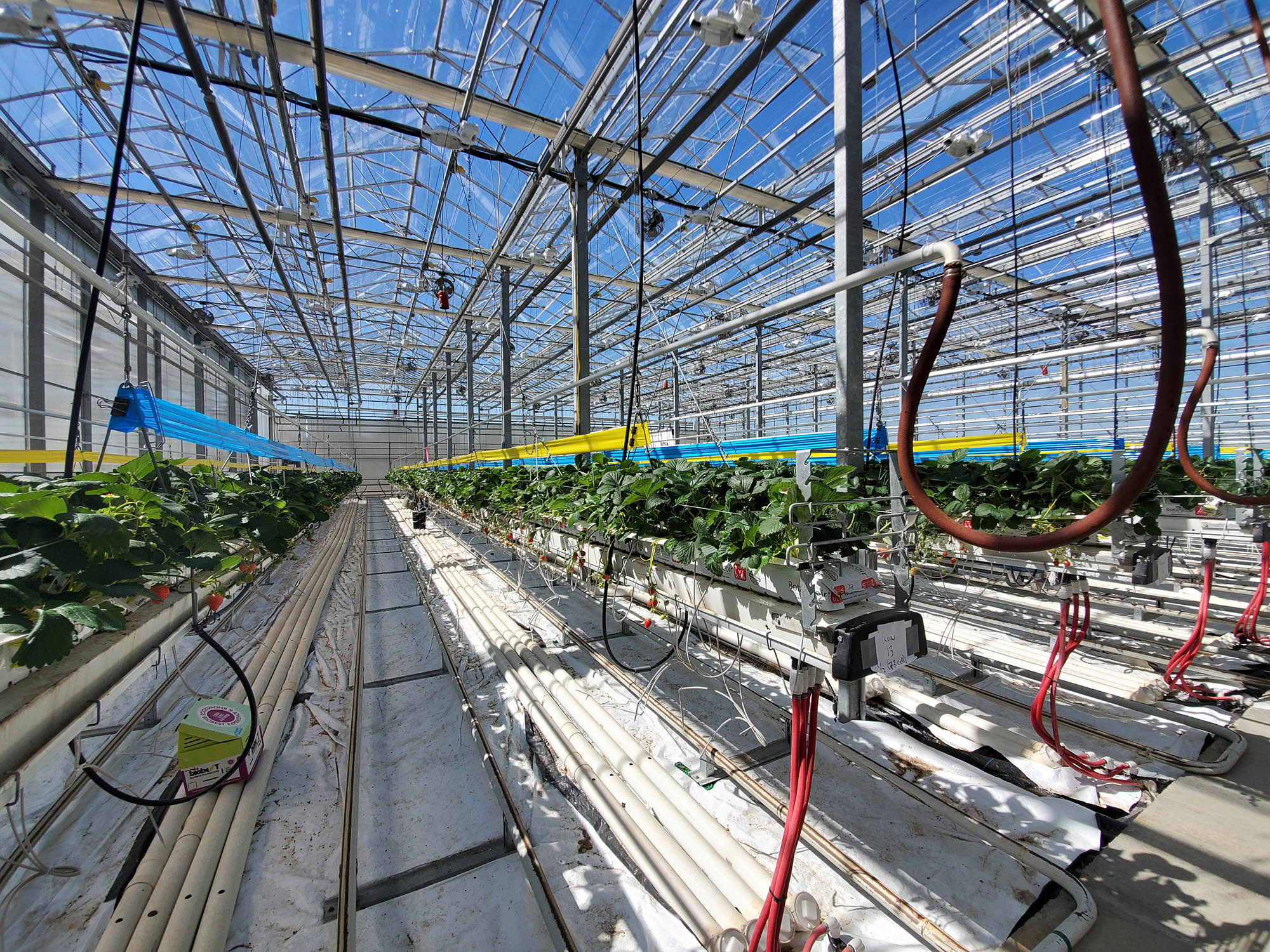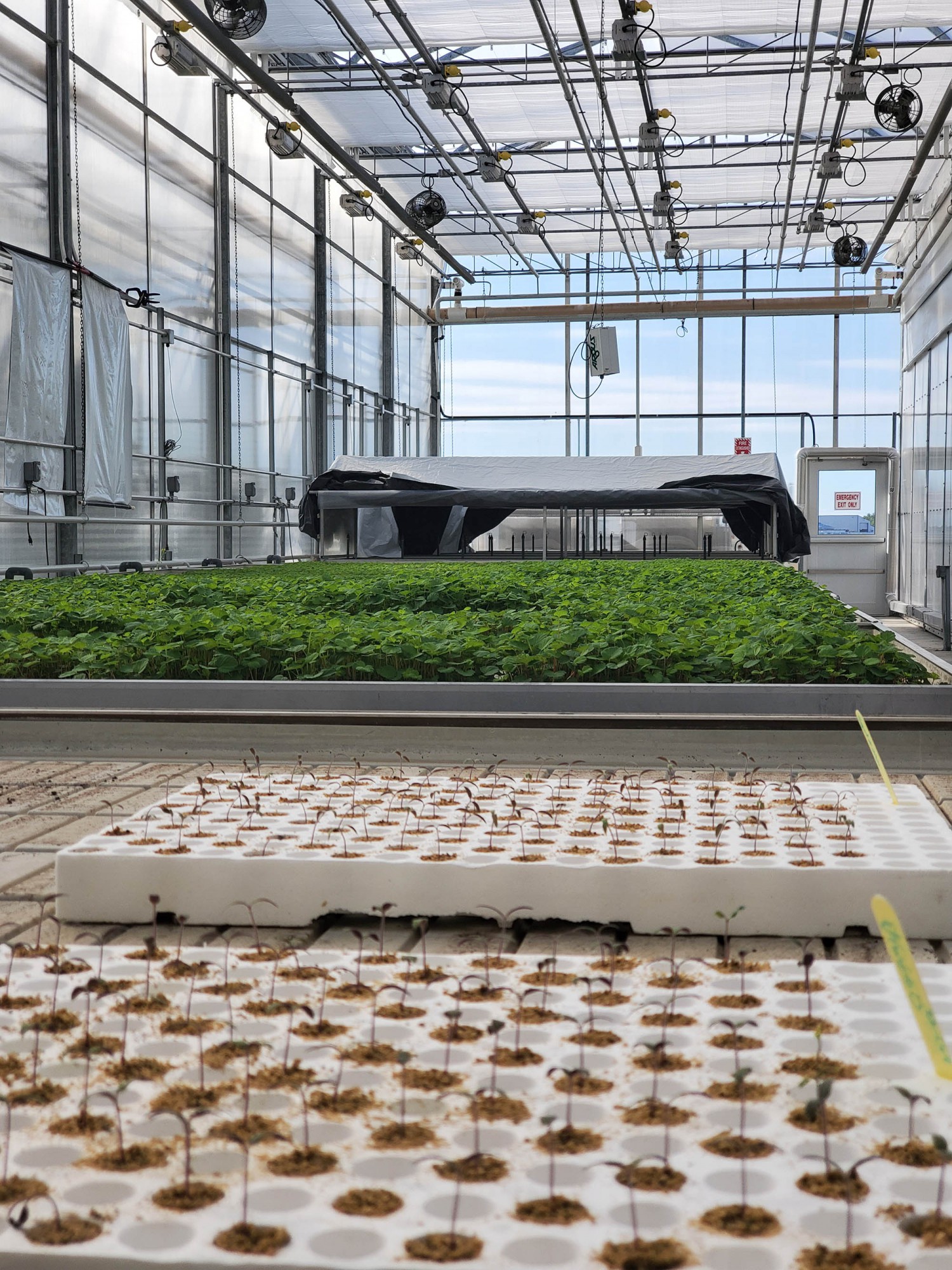 Lethbridge College researchers have formed one of just 15 innovation teams selected from across Canada to explore and develop new tools and technologies that will enable sustainable, year-round berry farming. The Homegrown Innovation Challenge, funded and administered by the Weston Family Foundation, delivers funding to participating teams to pursue innovative ideas that will support Canada’s berry industry and help decrease dependence on imported fresh fruits and vegetables.
Lethbridge College researchers have formed one of just 15 innovation teams selected from across Canada to explore and develop new tools and technologies that will enable sustainable, year-round berry farming. The Homegrown Innovation Challenge, funded and administered by the Weston Family Foundation, delivers funding to participating teams to pursue innovative ideas that will support Canada’s berry industry and help decrease dependence on imported fresh fruits and vegetables.
By being selected for phase one of the challenge, Lethbridge College’s team, along with its partners Sunterra Greenhouse and Meteor Systems, receive $50,000 from the Weston Family Foundation to refine its pitch idea, build a team and create a full proposal for the next phase of the challenge. The college’s proposal will test a variety of growing systems used in greenhouses to determine the most viable option to maximize the number of strawberries that can be grown per square metre.
“Our team hopes to address food security and global climate change challenges by reducing reliance on import produce markets, especially during the winter months,” says Megan Shapka, Director of Applied Research Operations, Lethbridge College. “Participating in this challenge supports Lethbridge College’s commitment as a signatory of the United Nations Sustainable Development Goals Accord, and it brings together our internal expertise and resources to work with our industry partners to create innovative solutions that will support the greenhouse industry for generations to come.”
 Lethbridge College is the only Alberta-based institution and one of only two colleges selected for the first round of the Homegrown Innovation Challenge. In Phase 2, 10 projects will be selected to receive $1 million each to develop and demonstrate a small-scale proof of concept. In total, the challenge will go on to award $33 million over six years to participating teams to support projects that enable Canadian farmers and producers to grow berries sustainably and competitively out of season.
Lethbridge College is the only Alberta-based institution and one of only two colleges selected for the first round of the Homegrown Innovation Challenge. In Phase 2, 10 projects will be selected to receive $1 million each to develop and demonstrate a small-scale proof of concept. In total, the challenge will go on to award $33 million over six years to participating teams to support projects that enable Canadian farmers and producers to grow berries sustainably and competitively out of season.
Lethbridge College has a 33-year history of agricultural applied research, with state-of-the-art facilities and research teams in the areas of climate-controlled agriculture, irrigation science and post-harvest technology. Sunterra Greenhouse operates a glass greenhouse facility in Acme, Alta., where it grows strawberries and tomatoes and has a 50-year history in farming, processing and retail sales of fresh produce. Meteor Systems is a producer and global distributor of complete growing systems for indoor and outdoor horticulture.
 “We believe that controlled environment agriculture is the future of food production in Canada,” says Amanda Hehr, President, Sunterra Greenhouse. “There has been tremendous pressure in recent years on conventional global agriculture systems due to climate change, increased transportation costs and geopolitical instability. Food security is an important issue and Sunterra Greenhouse is thrilled to partner with Lethbridge College and Meteor Systems to innovate and optimize indoor strawberry grow systems with a focus on high density production”.
“We believe that controlled environment agriculture is the future of food production in Canada,” says Amanda Hehr, President, Sunterra Greenhouse. “There has been tremendous pressure in recent years on conventional global agriculture systems due to climate change, increased transportation costs and geopolitical instability. Food security is an important issue and Sunterra Greenhouse is thrilled to partner with Lethbridge College and Meteor Systems to innovate and optimize indoor strawberry grow systems with a focus on high density production”.
Developing new and innovative solutions for producers will help to reduce Canada’s reliance on imported fresh produce and build the resilience of food systems. Canada’s high dependence on imported fresh fruits and vegetables makes it vulnerable to shocks and food systems disruption, particularly in a climate-changing world.
Participating teams have until Dec. 20 to submit their proposals to be considered for phase two of the challenge. Learn more about the Homegrown Innovation Challenge on its website. Learn more about Lethbridge College’s Centre for Applied Research, Innovation and Entrepreneurship at lethbridgecollege.ca/research.